Patty Henek is running for River Forest Village President on a platform of building subsidized housing. | Patty Henek for Village President
Patty Henek is running for River Forest Village President on a platform of building subsidized housing. | Patty Henek for Village President
A River Forest mayoral hopeful is running on a platform of bringing more low-income, Section 8 apartments to the village.
Non-profit executive Patty Henek, 53, calls subsidized housing “one of my passions.” She says she believes requiring wealthier River Forest homeowners to subsidize poorer renters “enriches the social fabric of the community” and benefits the local economy.
“Having an affordable housing plan… allows (subsidized residents) to have more discretionary funds to spend,“ Henek said. “It helps our community economically.”
Henek says that, if elected, she will prioritize building Section 8 units on the few undeveloped land parcels currently available in the small, 2.5 square mile village, pop. 11,064. That means offering low-income developers tax subsidies and “zoning code breaks” if they want to build larger buildings than are currently allowed, she says.
The largest existing available parcel, situated in the center of town, at the corner of main arteries Lake Street and Lathrop Avenue, has drawn the ire of Henek for a developer’s plan to build luxury townhomes and street-facing “lifestyle retail” there.
Henek says the village has enough owner-occupied homes. She wants residents to subsidize cheaper rentals for people who want to move into River Forest, but currently cannot afford it.
Currently, River Forest has 3,965 households, 437 (11 percent) of which are renters, according to the U.S. Census.
According to the U.S. Department of Housing and Urban Development, “Fair Market Rent” in River Forest is currently $1,250 for a one-bedroom, $1,450 for a two bedroom and $1,840 for a three bedroom.
In Elmwood Park, adjacent to River Forest on its northern boundary it is $1,070, $1,240 and $1,570. In Forest Park, on its southern boundary, it is $980, $1,140 and $1,450.
Assuming 30 percent of income spent on housing, a household has to earn $50,000 per year to afford a median-priced rental in River Forest, $42,900 in Elmwood Park and $39,200 in Forest Park.
The median household income in the Chicago metropolitan area is $57,238, according to the U.S. Census.
River Forest has a median income of $129,938. In Elmwood Park it is $59,963 and in Forest Park, $62,664.
1,000 new low income residents
Henek argues that River Forest still needs more low-cost apartments to attract even poorer people who desire to live there.
According to the U.S. Census, eight percent of River Forest households— home to approximately 802 residents—earn less than $25,000. Compared to similarly-sized peer communities, that’s more than Hinsdale (6.5 percent) and Western Springs (5.7 percent) and slightly less than Riverside (10 percent)
Henek has proposed transforming River Forest into at least 20 percent low income. This would necessitate adding some 400 more households and 1,000 new residents earning less than $25,000 to the village.
Finding space for these new residents poses a practical challenge. Founded in 1880 as a community specifically for single family homes, River Forest has been built out for nearly a century.
Save the village using tax dollars to buy and raze homes to clear land for low-income, subsidized developments, to meet her 20 percent goal, Henek would necessarily have to replace in-fill commercial parcels along Lake Street, in River Forest’s only available retail corridor, with mid or high-rise Section 8 apartment buildings.
Henek has said she would to halt and re-visit the in-progress Lake and Lathrop townhome and retail development, which is scheduled to be completed in fall 2022, according to developer Sedgwick Properties.
That development is expected to generate between $900,000 and $1 million in property taxes.
Village “education” campaign
State of Illinois officials have been trying to require the building of subsidized, low-income apartments in wealthier suburbs like River Forest. But without larger local taxpayer subsidies, developers have refused to build them.
Henek says she would force the issue by requiring all future development be low-income, something River Forest’s incumbent mayor, Cathy Adduci, first elected in 2013, has been loathe to do.
“I think it’s something we need to explore because I don’t believe that a developer is going to come in and just take the opportunity to put in (subsidized) housing,” Henek told the Wednesday Journal.
Henek said she would also lead the charge on a second obstacle: convincing her neighbors to pay higher taxes to fund someone else’s rent.
River Forest residents have historically opposed subsidized and low income developments because they “misunderstand” the benefits of them, Henek says. She’s calling for a village-funded “education” and “awareness-building” campaign.
In 2015, a proposal to build an 82-unit apartment building on the corner of Lake St. and Park Ave., across from Lincoln Elementary School, was shot down by the village board after drawing strong opposition from nearby residents. It would have offered smaller one and two bedroom units under 1,000 square feet.
The development wasn’t proposed as subsidized but could have become Section 8 if its owner proved unable to attract market-rate renters.
Section 8 of the Housing and Community Development Act of 1974 authorizes federal rent subsidies for privately-owned apartments. Renters typically pay 30 percent of their income and the federal government pays the rest.
A household with $25,000 in income receiving a Section 8 voucher would pay a maximum of $667 per month in rent
Adduci, 63, was first elected River Forest Village President in 2013. She previously served one term as a village trustee.
Henek was first elected to the village board in 2017.
The election is Tues. April 6.

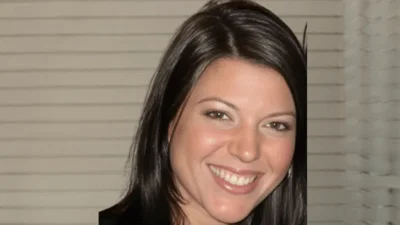
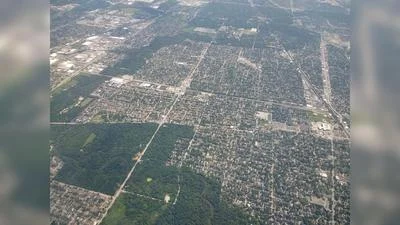
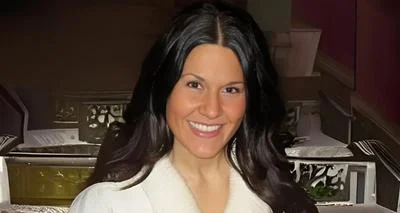
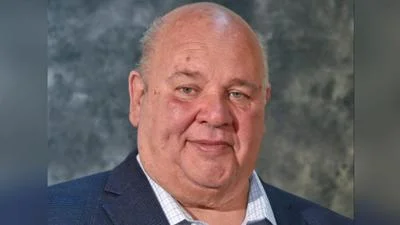
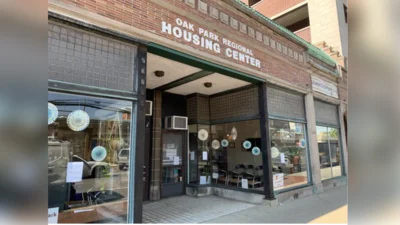
 Alerts Sign-up
Alerts Sign-up